What Does Training For Trading Entail? [My Perspective as a Full-Time Trader]
I reference “training” in relation to “trading” quite often. And in my own mind, I often think of them as one and the same.
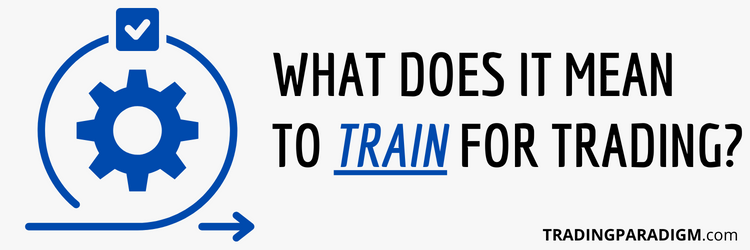
Trading doesn’t just require education and training in the beginning stages. It requires continuous learning, improvement, adaptation, and iteration throughout your entire time within markets. Your development is an ongoing process.
You don’t just learn about some cookie-cutter candlestick patterns and basic technical indicators – and then that’s it. You’re done. Training complete. You’re well-equipped to go make millions in the markets. That’s just not how it works.
Being/becoming a legitimately competent and skilled intraday trader requires hard work every single day: tracking, journaling, and reviewing to hone your craft. Contrary to how it’s often treated – trading is a skilled-based, peak-performance endeavor.
You never hear about the “work” required to be/become a consistently profitable trader in marketing advertisements for various trading courses, programs, and services because it doesn’t “sell”. People don’t want work; they want shortcuts.
But you’ll never acquire the rewards that these marketers/salesmen love to highlight by undercutting your own development.
First, Recognize the 2 Core Components of Sustainable Trading Success:
Before diving into the specifics of training to become a competent, skilled, self-sufficient, and consistently profitable trader – it’s important to recognize the 2 core components of trading success: 1) Edge/Methodology, and 2) Mindset/Psychology.
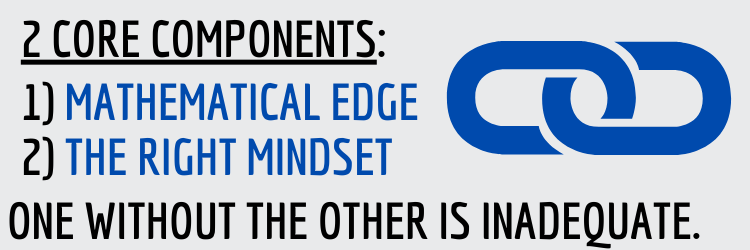
There’s quite a bit of overlap and interconnection between the two, so it’s impossible to separate them completely. But for the sake of clarity, I think it does help to initially consider them independently from one another and then realize how they blend together.
I don’t particularly like when people say things like: “Strategy only accounts for 10% of trading success and mindset accounts for 90%” because it’s an incredibly misleading statement that makes people not take skill-building around their method seriously.
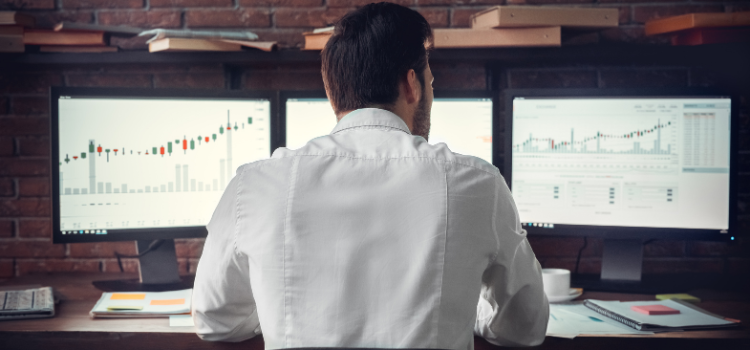
It gives the impression that everything (even an extremely basic, rudimentary approach) offers meaningful edge, and as long as you stay calm, balanced, patient, and overall have the right “mindset” to follow your rules – you’ll achieve your trading goals.
But this is nonsense. Don’t get me wrong – I’m a huge proponent of developing the right mindset/psychology. And there are a lot of different ways to trade that might technically offer “edge” (meaning they at least produce slightly above break-even results).
But as an active trader, you have to ask yourself: “Is slightly above break-even really worth my time, energy, and focus?”
Stage 1: Build Competence & Skill Around a Powerful Methodology With Meaningful Edge
Through my own personal experiences as a new trader (close to a decade ago now) and dealing with numerous beginner-level traders on a regular basis, it’s clear that most simply don’t have powerful methodologies with meaningful edge.
Almost every new trader I come across claims to have a “strategy”. But when I dig into what that strategy is, it often just involves buying & selling based on some fairly arbitrary candlestick pattern(s) and/or technical indicator(s) on 1 timeframe.
But this does NOT constitute a strong methodology. It’s merely a surface-level approach with little to no edge. When it comes to acquiring deep market competence & trading skill, it necessitates deliberate practice around something worthwhile/meaningful.
In my opinion, deep market competence starts with auction market theory – which explains how markets move/behave. And as a direct extension of that, volume & market profile are the best tools for viewing & analyzing that movement/behavior.
With these foundational auction concepts/principles and profiling tools in place, real competence & skill can then be built around the 3 core elements of a robust methodology: 1) Contextual Analysis, 2) Playbook Setups, and 3) Short-Term Order Flow.
Using a sim/demo/replay platform to deliberately practice analyzing context, implement & track playbook setups, and use short-term order flow to refine entries & exits is how you go about training. This is the source of real competence/skill/edge.
Best Edge/Methodology Training & Mentorship Programs:
Related Edge/Methodology Articles to Further Your Understanding:
- 3 Core Components of a Robust Market Methodology
- What is Profile Trading – Volume Profile & Market Profile
- 3 Critical Phases of the Trading Day – Prep, Trade, and Review
- Molding Your Market Framework – How Do You View Markets?
- How to Properly Track Your Trades to Figure Out What Works
Stage 2: Bolster Your Mindset/Psychology to Enhance Performance Around Your Methodology
With a high level of competence & skill acquired around a strong methodology with meaningful edge, this is when focusing on the mindset component is most effective (because you now have a powerful method with edge to wrap that mindset around).
I see far too many developing traders with weak strategies/systems/methodologies (and little to no competence & skill to support them) blame their poor results on “mindset”. But the root cause is actually a lack of real competence & skill to rely upon.
When it comes to trading mindset/psychology, there tends to be a lot of discussion around “confidence” and “consistency”. But the source of real confidence and consistency is your methodology that offers mathematical edge aka positive expected value.
If you’re thinking, feeling, and behaving with confidence and consistency around a methodology that doesn’t actually have edge – that’s just foolish; it’s blind confidence. So you need to weave the proper mindset/psychology around legitimate skill & edge.
This, of course, isn’t to say that the mindset component is unimportant; that’s not what I’m saying at all. I think it’s an essential piece to the puzzle that requires a lot of new/adjusted beliefs, perspectives, habits, routines, etc. in order to get right.
But if you lack market competence/skill/edge, don’t fool yourself into thinking becoming more “balanced” or “disciplined” will save you.
Best Mindset/Psychology Courses & Resources:
- The Trading Success Framework Course
- The Advanced Traders Mindset Course at 2ndSkies
- The Trading Psychology Mastery Course at Trading Composure
Related Mindset/Psychology Articles to Further Your Understanding:
- Failure is Only Feedback – Use Losses and Mistakes to Grow
- Transform Yourself Into the Trader You Want to Be in 3 Steps
- What is a Trading Mindset Journal – Why You Truly Need One
- The Market is a Mirror – Your Experience is a Reflection of You
- Values and Principles to Live By as a Trader – What’s Your Mission?
Conclusion – How to Go About Training to Become an Active Intraday Trader:
Overall, trading is a challenging endeavor that absolutely requires training on multiple fronts (technical, analytical, mental, etc.).
And all of the Edge/Method vs. Mindset/Psychology talk can get confusing because there’s a ton of overlap (and “probabilistic-thinking” is a perfect example of this overlap). But it just goes to show the critical importance of blending the two together.
It’s not a one or the other situation with these 2 core components – you need both. And they need to be effectively combined and intertwined into a powerful, complete whole that supports your goals from both an emotional and financial perspective.
Unfortunately, a lot of people aren’t actually interested in doing the work: the skill & habit-building around contextual analysis, their specific playbook of setups/strategies, and short-term order flow. They just want the rewards/profits.
But in the long-run, luck eventually runs out and shortcuts that undercut personal development prove to be harmful; leaving consistent, sustainable success solely for the individuals who have taken the training component seriously.
Patterns/strategies come and go. But deep market competence, trading skill, and a tilt toward continuous improvement endures.
Written by Matt Thomas (@MattThomasTP)
About TradingParadigm.com
Intro Trading Success Framework Course
Related Articles:
- Day Trading vs. Gambling – Is Day Trading Gambling?
- What is Meditation For Trading – Peak Performance Habits
- 4 Market Characteristics You Must Align With For Success
- Why is Day Trading So Stressful – Learn How to Overcome it
- Best Futures Trading Indicators – The Top 2 on My Charts


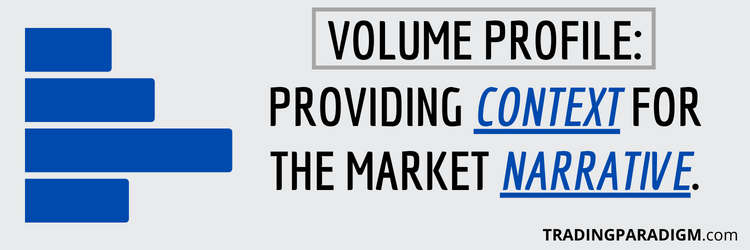
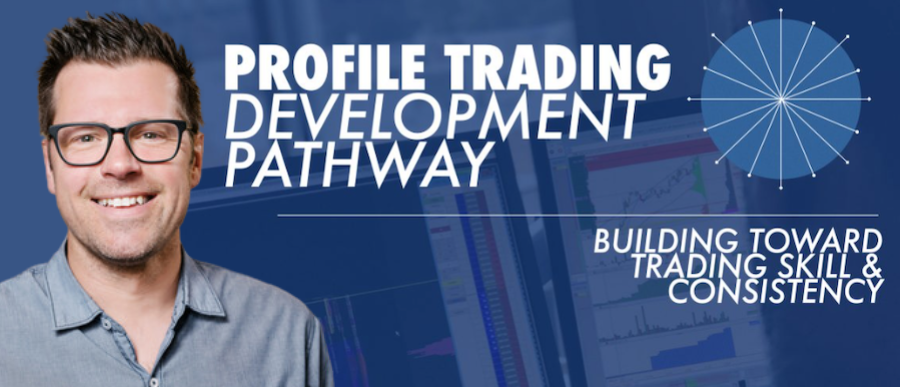
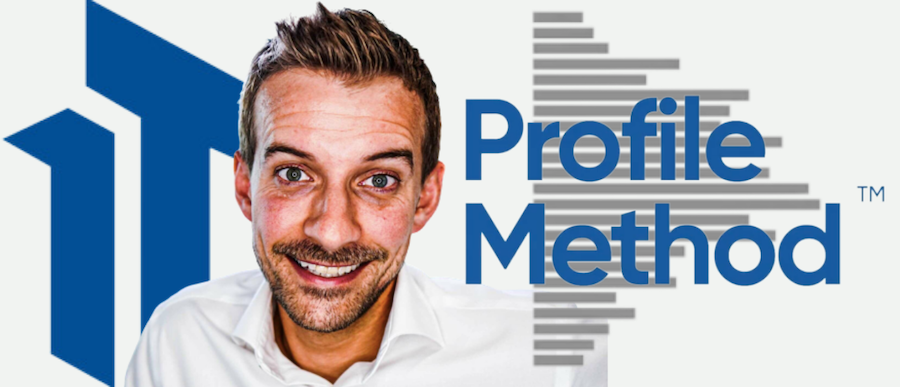
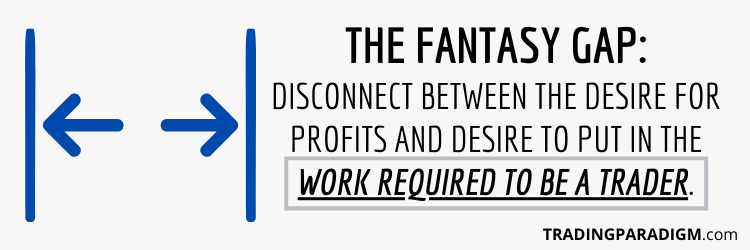
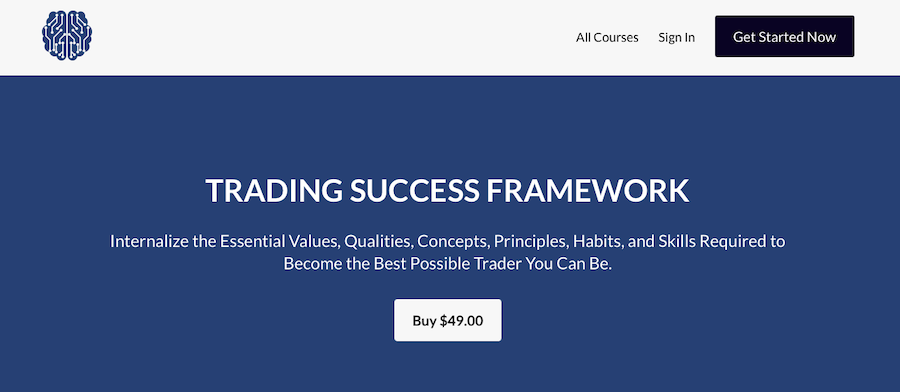
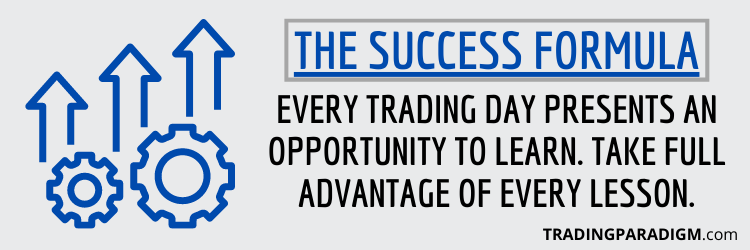

Thanks for shedding light on the importance of training for day trading and what this training entails. Day trading is a highly specialized and dynamic field that requires a deep understanding of the financial markets, risk management, and strategic decision-making. By emphasizing the significance of training, you highlight the need for aspiring day traders to equip themselves with the necessary knowledge and skills to navigate this fast-paced environment successfully.
It’s not merely about acquiring theoretical knowledge; it encompasses a holistic approach to learning. It involves gaining practical experience through simulated trading platforms and engaging in real-time market analysis. You rightly point out that trading simulators and demo platforms with replay functionalities allow novice traders to practice their strategies and hone their skills in a risk-free environment. This hands-on experience is crucial in building confidence, developing intuition, and refining one’s decision-making abilities.
Absolutely Demi – happy to help!
I completely agree with everything you’ve said. Far too many hopeful traders think there’s some sort of magical answer to trading success (like a foolproof indicator, for example) that they just need to discover and then set-and-forget. But that’s not how good/real trading works. I absolutely believe that there are certain tools/indicators that are better/stronger/more robust than others (like volume profile, market profile, and VWAP). But simply learning them on a theoretical level isn’t enough. Legitimate competence and skill needs to be developed around these tools through deliberate practice and daily prep/review. This “training” is the work that being/becoming a real, self-sufficient, and consistently profitable trader entails.
Thanks again for sharing your thoughts – take care!
This article has truly opened my eyes to the importance of acquiring the necessary skills and knowledge for successful trading. I’ve always been fascinated by the world of finance, but now I realize the significance of proper training in order to navigate the complexities of day trading effectively. The article has piqued my interest, and I am eager to delve deeper into this subject and expand my understanding – especially when it comes to having the correct mindset. With the guidance and education mentioned in the article, I am confident that I can develop the skills needed to become a proficient day trader. Thank you for shedding light on this crucial aspect of trading, and I look forward to learning more!
Hi Freddie – I appreciate the comment. Happy to help!